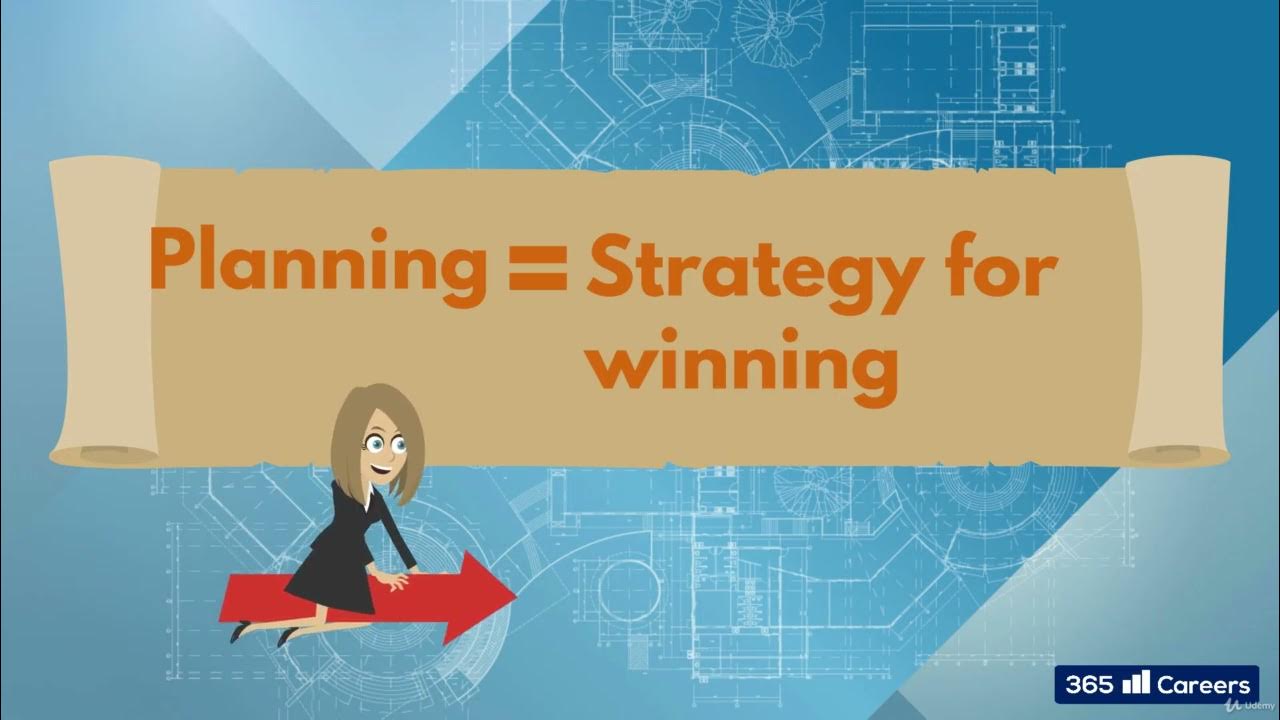My Top 10 Project Management Concepts
Summary
TLDRThis video script outlines the top 10 concepts in project management, starting with project definition as the foundation. It covers the balance of time, cost, quality, and scope, emphasizing value delivery, governance, stakeholder engagement, and planning. Resource management, project controls, risk management, and the monitor and control cycle are highlighted as crucial for successful project execution, with a focus on iterative and agile practices.
Takeaways
- 📝 Project Definition: Establishing a clear understanding of the project's goals, objectives, and scope is crucial.
- 🔺 Triple Constraint: Projects must balance time, cost, and quality (or scope) to address challenges effectively.
- 💰 Value: Ensuring the benefits of the project outweigh its costs is essential for its justification and success.
- 📊 Governance: Proper governance involves setting direction, making decisions, and overseeing the project to keep it on track.
- 👥 Stakeholders: Engaging stakeholders productively and respectfully is vital as they can affect or be affected by the project.
- 🗺️ Planning: Effective planning is necessary to deploy resources properly and prevent poor performance.
- 🔧 Resources: Managing resources, including people, equipment, and budget, is key to project success.
- 📈 Control: Implementing project controls, like risk management and change control, helps keep the project aligned with its plan.
- ⚠️ Risk Management: Identifying and managing uncertainties that can impact the project is a core discipline.
- 🔄 Monitor and Control: Continuously monitoring and intervening as necessary ensures the project stays on track and problems are addressed early.
Q & A
What is the first important concept in project management mentioned in the video?
-The first important concept in project management is project definition, which involves clearly defining what the project is and what it is not, along with a clear statement of the project's goal, objectives, and scope.
What is the 'triangle of balance' or 'triple constraint' in project management?
-The 'triangle of balance' or 'triple constraint' in project management refers to the relationship between time, cost, and quality (or scope). Any project management question can be resolved by considering compromises among these three constraints.
Why is the concept of value important in project management?
-The concept of value is important because it represents the balance between the cost of a project and the benefits it delivers. A project is considered worthwhile if the benefits outweigh the costs by a significant margin.
What is governance in project management and why is it vital?
-Governance in project management involves steering the project in the right direction, making decisions, and overseeing the project to ensure it retains the right direction and does things correctly. It is vital for setting direction, making decisions, and ensuring the project's success.
What are stakeholders in a project, and what is a project manager's role in engaging with them?
-Stakeholders are individuals who have a stake in the project, are affected by it, or can affect it. A project manager's role is to engage with stakeholders respectfully and productively, consulting their advice, learning from them, and influencing them.
Why is planning considered a key concept in project management?
-Planning is crucial because it involves understanding how, when, and where resources will be deployed. Proper planning prevents poor performance by ensuring the project is prepared and set up for success.
What is the significance of resources in project management?
-Resources are significant because they include people, assets, equipment, tools, materials, and money. A project manager's job is to gather, allocate, and control these resources to ensure the project's success.
What are project controls, and why are they essential?
-Project controls are methods, processes, and procedures used to keep a project on plan or bring it back on plan if it drifts away. They are essential for maintaining control and handling deviations from the plan, ensuring project success.
How does risk management fit into project management?
-Risk management is crucial because projects are inherently uncertain and risky. It involves identifying uncertainties that could impact outcomes, assessing their likelihood and impact, and managing them to mitigate potential negative effects on the project.
What is the monitor and control cycle in project management?
-The monitor and control cycle involves continuously monitoring project progress and intervening when deviations from the plan occur. The faster this cycle is executed, the more control the project manager has, allowing for minor interventions to correct small issues before they become major problems.
Outlines

This section is available to paid users only. Please upgrade to access this part.
Upgrade NowMindmap

This section is available to paid users only. Please upgrade to access this part.
Upgrade NowKeywords

This section is available to paid users only. Please upgrade to access this part.
Upgrade NowHighlights

This section is available to paid users only. Please upgrade to access this part.
Upgrade NowTranscripts

This section is available to paid users only. Please upgrade to access this part.
Upgrade NowBrowse More Related Video

PENGANTAR MANAJEMEN PROYEK SISTEM INFORMASI | Pertemuan 2

Importance of Project Management [BIG BENEFITS]

Manajemen Proyek: Pengantar Manajemen Proyek

10 Project Management Terms You Need to Know

Simple project management & triple constraints

010 How does a project start and how does it evolve What a project's main stages
5.0 / 5 (0 votes)